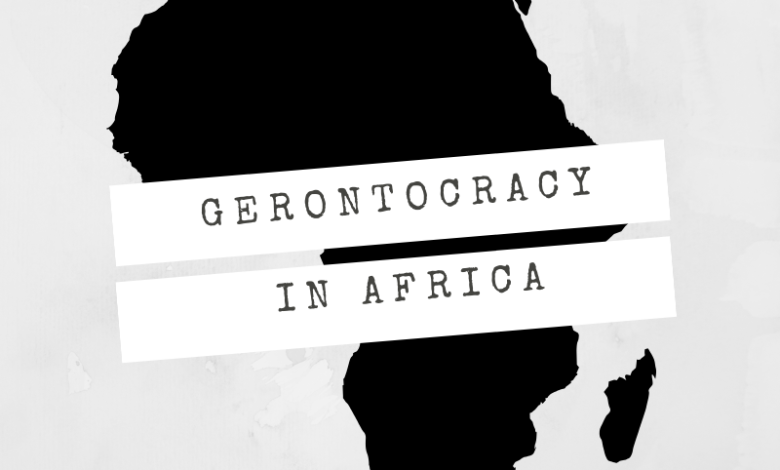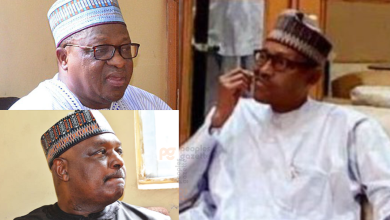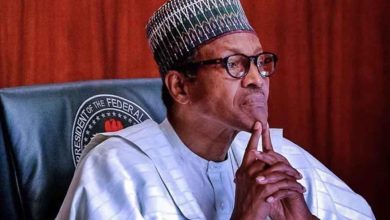
Judging from available statistics, citizens and institutions of Nigeria and most African countries are not sensitive to the age factor in their choice of elected and appointed public officials.
The average age of retirement in most parts of the continent is 60 years. However, from Cameroun to Guinea, Ivory Coast, Ghana, South Africa, Uganda, Sao Tome and Principe, Zimbabwe, as well as Nigeria, an average president or prime minister is seventy-five years old: that is fifteen years above the average retirement age in most countries.
What is the implication of this for national development? Nigeria, the giant of Africa is being ruled by a 77year old, retired Army General who was once ruled the country as a military dictator.
The federal government is dominated by old men and women sitting atop ministries, departments, and agencies. For example, the Minister of Health is 77, Information is 70, and Education is 68. Seventy-seven years old President Muhammadu Buhari has two aged men running as presidential candidates of the two major political parties jostling to succeed him.
They are above 70! The scenario painted above suggests that a form of oligarchic rule by political elite who are significantly older than most of the adult population is gradually being formed. This leaves one with the question: is Nigeria tending ‘towards gerontocracy? It is true that political power within the ruling class accumulates with age and sometimes inevitably make the oldest the key actors.
Read Also: Terrorists bomb Kuje Prison, attack Buhari’s Daura advance convoy for Sallah
We acknowledge that this can produce experienced leadership that can aid decision processes and law making. But we are equally aware that several contradictions may greet a political system dominated by the aged. Such contradictions include the significant concerns of age-related cognitive decline which limits the capacities to effectively coordinate the tedious affairs of governance.
There are many others. The old may be ill equipped to fully understand the modern world and the tools to navigate it; especially when it comes to technology and prevailing global culture. Political parties and offices in a gerontocratic country often become pre-ancestral retirement homes.
People who occupy such homes, knowing they have only little life before joining their ancestors, are prone to throwing caution to the wind and being insensitive to the future of the country, especially when compared to youngsters who think and know they have many more years in the polity.
The political system is thus left to be run by accumulated money and personalized influence, not fresh ideas from fresh minds. Youth who have fresh global ideas are sidelined, and, on the average, may not have the opportunity to lead until they also become old.
With gerontocracy there appears to be no serious impact that can be made on the welfare of the citizenry and development of a country. The foregoing is what our country cannot afford at this period of her history. Citizens who are too old to participate in politics can either make themselves available for consultation or retire permanently from politics.
This can inject huge energy and ideas to the political system. It also will save the country medical bills accumulated by any old presidents and other political leaders who always travel abroad for medical treatment.
Where, for some reasons, the political system does not produce young political competitors as in the current preparation for the 2023 elections, available old candidates must undergo mental and physical medical clearances before being nominated by their political parties and cleared by INEC.
Youths in the country should recognize their ability to mitigate the loss of some cognitive function in the aged, so, they need to be available to work with old political leaders that are thrown up by the political system. Also, the youths need to rise to the occasion of rounded political participation and take charge from old breed politicians. If the youths make up to 45 percent of Nigeria and democracy means the rule of majority, it begs logic that the Nigerian political scene will be dominated by the aged.
As Nigerians await the end of the septuagenarian administration of President Buhari, we call on Nigerians to be conscious about the age factor in electing the next set of leaders in the country. It is an anomaly that a population that is dominated by the youth will be permanently ruled by old men who have been in different discredited governments that have plunged the country into its current mess.
Civil society organizations should help to educate the public on the dangers of creating a gerontocracy in the political administration of the country.




